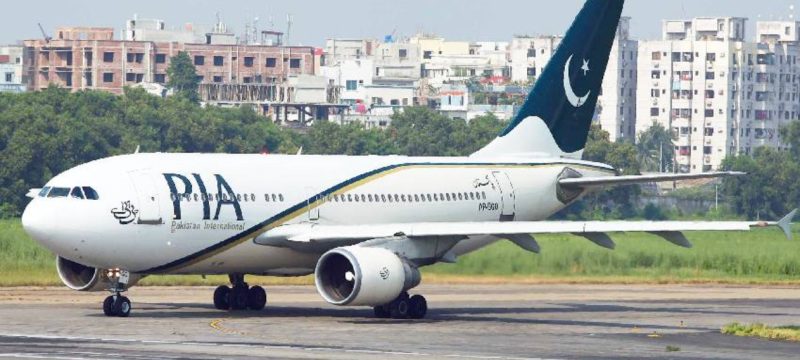The government’s attempt to privatize Pakistan International Airlines (PIA) fell apart on Thursday when the sole bidder, Blue World City, offered just Rs10 billion for a 60% stake, a fraction of the government’s minimum sale price of Rs85.03 billion. The bidding process, which was televised, ended quickly as Blue World City declined to match the government’s expected price, which was approximately $305 million. Instead, their offer amounted to only $36 million, or 12% of the minimum price. This marked the government’s first serious effort to privatize PIA, one of the largest loss-making state-owned enterprises, but the process collapsed at the bid opening stage.
Blue World City was the only bidder remaining after five other pre-qualified parties withdrew, primarily due to disagreements over the government’s conditions. These included handling tax liabilities, committing to guaranteed investments, expanding PIA’s fleet, and retaining employees for a set period. The owner of Blue World City, Saad Nazir, stated that they were standing by their Rs10 billion offer, highlighting that despite PIA’s poor financial standing, they placed their bid in the interest of the national flag carrier. Seham Raza, the company’s Chief Operating Officer (COO), expressed disappointment over the lack of competition, as no other bidders submitted financial offers.
Also Read: PIA Flight Attendant Caught Smuggling Cellphones from Canada
The government’s high expectations and stringent conditions were significant factors in the failure. These included a requirement for the new owners to invest between $500 million to $700 million in PIA, reduce the average fleet age from 17 to 10 years within five years, and retain existing employees for an initial period of 2-3 years, which was later reduced to 1.5 years. Despite carving out Rs625 billion in PIA debt and transferring it to a holding company, leaving PIA with Rs202 billion in liabilities and Rs163 billion in assets, bidders were still unwilling to accept additional liabilities, such as taxes.
The failure to privatize PIA could have broader implications for the government’s ongoing privatization agenda. Despite efforts to make the airline more appealing to buyers by reducing its liabilities and offering incentives, PIA’s severe financial instability and operational inefficiencies remained significant barriers. The future of PIA now remains uncertain as the government considers its next steps.









